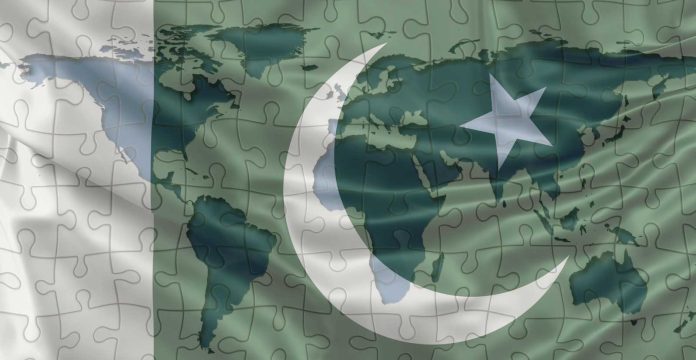Karol Samuel
Artificial Intelligence (AI) is no longer a distant frontier of science fiction-it is the defining technology of the 21st century. From economic competitiveness to national security and international diplomacy, AI is transforming the global order. For Pakistan, a country at the crossroads of digital development and strategic geopolitical interests, formulating a robust foreign policy on AI is both a necessity and an opportunity.
Currently, global powers like the United States, China, and the European Union are advancing national and international strategies that seek to harness AI for economic and strategic gains. AI-driven technologies are now influencing defense systems, cyber security, global trade, healthcare, education, and even diplomatic engagements. If Pakistan does not establish a proactive and coherent foreign policy on AI, it risks being sidelined in the new global hierarchy.
A well-crafted AI foreign policy would serve several purposes. First, it would position Pakistan as a responsible player in the global technology ecosystem. Second, it would facilitate strategic partnerships with countries that are leaders in AI research and development. Third, it would ensure Pakistan’s voice is heard in global debates around ethical AI use, data governance, and digital sovereignty.
Pakistan must prioritize diplomatic engagement in AI-focused multilateral forums. Institutions like the UN’s AI for Good initiative, the Global Partnership on Artificial Intelligence (GPAI), and the OECD’s AI Policy Observatory are shaping global norms and standards. Pakistan’s participation in such forums must be amplified not just for visibility but to influence and learn from international best practices.
Moreover, Pakistan needs to strengthen bilateral AI cooperation, especially with countries such as China, Turkey, and members of the Organization of Islamic Cooperation (OIC), which are also exploring AI in governance and industry. These partnerships can facilitate knowledge exchange, joint R&D projects, and capacity building, particularly in defense technology, fintech, agriculture, and public health.
Pakistan’s AI diplomacy should also emphasize the ethical use of technology. At a time when AI is raising concerns about surveillance, privacy, and misinformation, Pakistan can promote an Islamic and humanitarian perspective that upholds human dignity, equity, and justice in the digital realm. This could be a valuable contribution to the global discourse, positioning Pakistan as a normative leader among developing nations.
Capacity-building is essential. The Ministry of Foreign Affairs must collaborate with national AI bodies such as the National Center of Artificial Intelligence (N.C.AI) and leading universities to train diplomats in emerging technologies. These techno-diplomats can then represent Pakistan’s interests more effectively on global platforms.
Furthermore, AI-related foreign investments must be guided by a clear framework. Pakistan must balance openness with strategic caution. While inviting foreign AI firms and researchers is crucial for growth, regulatory safeguards are needed to protect national data, critical infrastructure, and intellectual property.
Pakistan should also advocate for a South-South AI collaboration framework among developing nations. Many Global South countries share similar challenges-lack of infrastructure, digital literacy gaps, and insufficient R&D funding. A collective approach can help these nations gain bargaining power and shape international AI rules that are inclusive and equitable.
In conclusion, Pakistan stands at a pivotal moment. A comprehensive AI foreign policy can help it navigate the evolving digital landscape while aligning technology with national interests and ethical values. AI should not merely be a technical pursuit; it must be a cornerstone of our foreign policy vision. By embracing this strategic approach, Pakistan can ensure its sovereignty, enhance its global standing, and harness AI for the benefit of its people and the world.





